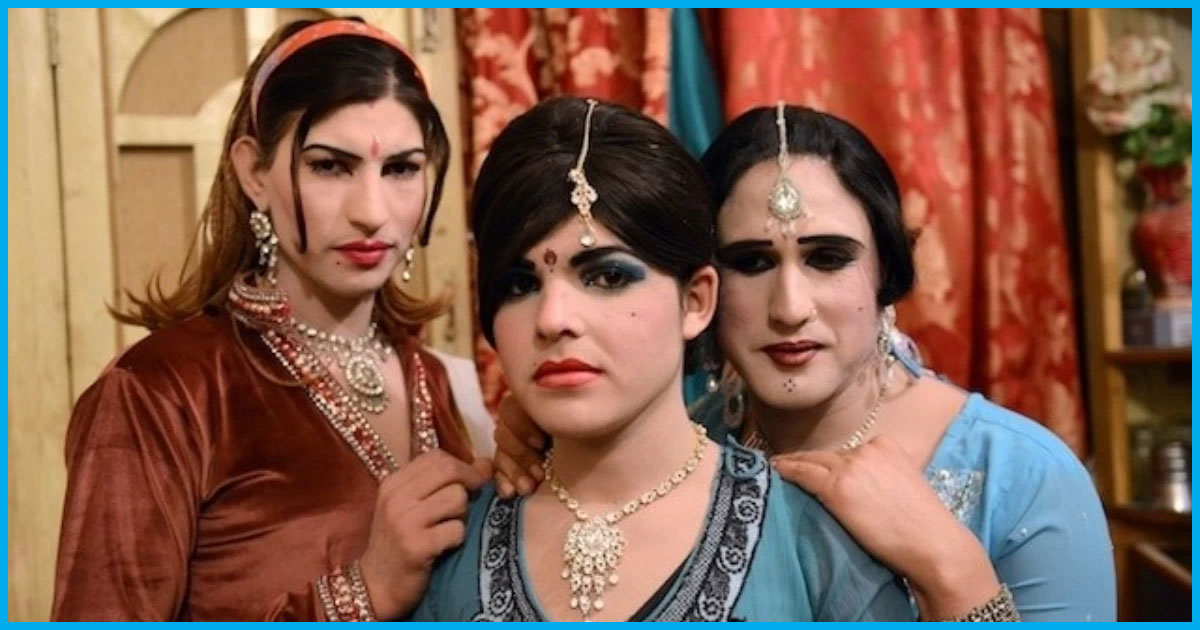
Pakistan Passes A Historical Law Recognising Rights Of Country's Transgender Community
10 May 2018 10:33 AM GMT
Editor : Ankit Sharma Sharma
Green tea Addict | A Tree Hugger | Born for Change
Pakistani Parliament on Tuesday passed the Transgender Persons (Protection of Rights) Act, 2018 which activists praised as “unprecedented and historical”. The Act intends to provide protection, relief and rehabilitation to transgender persons for their welfare and prohibit discrimination.
The Act was unanimously passed by the Members of the Parliament and awaits presidential assent. The Transgender Person’s Act, 2018 further reiterates the recognition of the transgender community and guarantees them equal opportunity in education, employment, inheriting property and fundamental rights, which are relevant to everyone as per the Pakistani Constitution.
Once approved by President Mamnoon Hussain, the Act will come into force, and the legislature is entitled to make necessary rules and amendments. The Act enables transgender persons to be recognised as per their self-perceived identity and register accordingly with government services.
The Act prohibits discrimination, right to inherit, right to education, right to employment, right to vote, right to hold public office, right to health, right to assembly, right to access public places and right to property. It prevents the harassment of transgender persons both within and outside the home.
Transgender Rights in India
On 15 April 2014, Supreme Court of India in NALSA (National legal services Authority) vs Union of India had given a landmark judgement recognising the transgender community as the third gender thus, upholding gender equality and affirming that the fundamental rights granted under the Constitution of India would be equally applicable to transgender people.
The judgement also states that transgender people should be treated as socially and educationally backward classes and granted particular reservation in education and jobs.
Four years passed, yet the judgement has not passed as law. The first transgender law was introduced as a private member bill by Dravida Munnetra Kazhagam (DMK) party MP Tiruchy Siva and unanimously passed by Rajya Sabha in December 2014 and pending to be passed in Lok Sabha. The law was hailed as progressive and a game changer in guaranteeing equality.
Following which the Central Government introduced new Transgender Persons (Protection of Rights) Bill 2016, which is a further diluted version of the private member bill passed by the Rajya Sabha and in complete contravention with the Supreme Court judgement.
The Private member bill stated that any person has the right to choose their gender according to their self-perceived identity as male, female or transgender. Whereas the government’s bill proposes a district screening committee of four members to certify transgender persons. This violates the Supreme Court judgment which upheld the transgender person’s right to decide their self-identified gender.
The private member bill stressed the need to form National and State transgender welfare association which is also likely excluded in the government’s bill. The government’s bill has also dropped the provisions of reservation for transgenders in education and employment, which was directed in the Supreme Court NALSA vs Union of India judgement and the private member’s bill.
The Parliament has sent the bill for consideration of parliamentary committee on social justice and empowerment. The committee headed by BJP MP Ramesh Bais passed recommendations on July 21, 2017
Recommendations
The Parliamentary Standing Committee in its report to the Lok Sabha criticised the government for not addressing issues such as marriage and reservation. The report cited an unclear definition of a transgender person and also said that transgenders “remain at risk of criminalisation under Section 377 of the IPC”.
Section 377 of the Indian Penal Code criminalises sexual activities against the order of nature, including homosexual sex. Transgenders likely fall under this net. The Delhi High Court judgement decriminalized the section in 2009, which was later overturned by the Supreme Court in December 2013 restoring criminality of section 377.
Congress MP Shashi Tharoor had introduced private member bills in the parliament decriminalising section 377. However, it was consequently defeated in the Lok Sabha on several occasions.
The committee has asked the government to include a definition of “discrimination” in the bill covering domestic and sexual violence’s faced by them. It also asked the central and state governments and the civil society to adopt measures for creating awareness about transgenders.
Following the committee’s recommendation, the government proposed a final draft before the Parliament in March 2018. The government accepted the removal of medical screening committees at the district level. Some of the key recommendations that find place in the final draft include rescue, protection, and rehabilitation of transgenders.
However, there are no provisions for reservations as mandated in the Supreme Court judgement and in decriminalizing section 377 which criminalises homosexuality.
Also published on Medium.
 All section
All section













